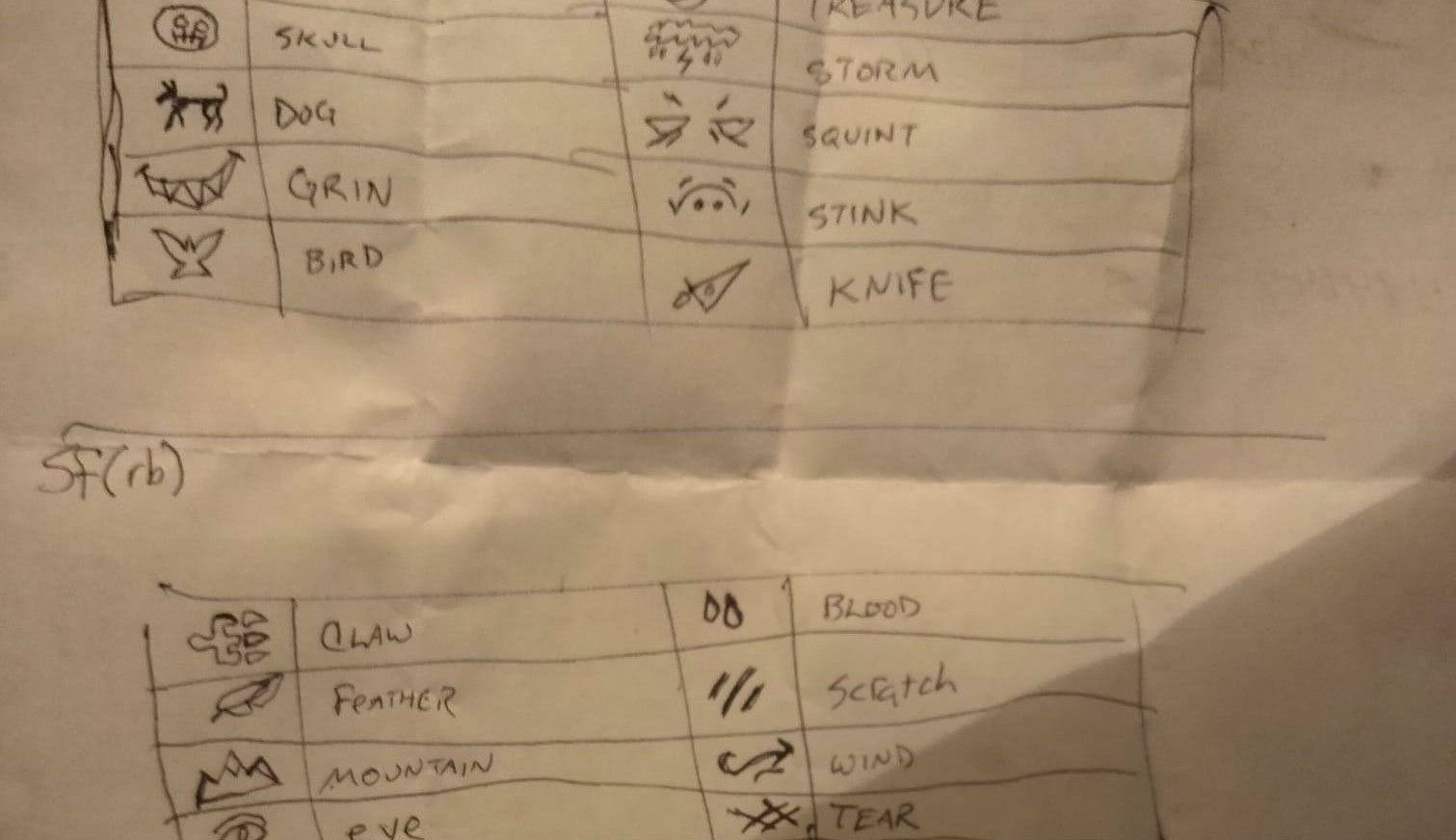Do you like familiars? I like familiars. Everyone should like familiars. This week on Fox’s Cunning I’m going to go over all the ways you can get a familiar, what they can do, and then explore the often overlooked world of specific familiars! But first: What is a familiar? In Pathfinder, they are mystically bonded creatures tied to your magic that usually take the form of a Tiny animal of your choice. I say “usually” as there are feats that grant special kinds of familiars you can’t get just using the Familiar Sorcerer/Wizard feat.
How to Familiarize Yourself with a Familiar
Base Classes
Alchemist: The Alchemical Familiar feat grants you a familiar with 2 familiar abilities.
Druid: Leaf druids get the Leshy Familiar feat for free, granting you a plant familiar with 2 familiar abilities. You can improve your Leshy with Leshy Familiar Secrets and Enhanced Familiar. In Pathfinder Society, characters liked by the Verdant Wheel can select the Leshy Familiar feat regardless of class. You can improve your familiar with Enhanced Familiar.
Sorcerer/Wizard The Familiar feat grants you a Tiny animal with 2 familiar abilities. Wizards with the Improved Familiar Attunement Arcane Thesis get extra abilities as you level. You can improve your familiar with Enhanced Familiar.
Witch: All Witches have a familiar with 3 abilities. They can be objects if your patron is Baba Yaga. They gain further abilities as you level and can improve their familiar with Enhanced Familiar and Incredible Familiar. They have a number of other feats and a focus spell that uses their familiar, and use their familiar to prepare spells each day. It is replaced the next day if killed.
Archetypes
Alchemist/Druid/Sorcerer/Wizard/Witch Multiclass: These multiclass archetypes confer access to feats that grant a familiar. The witch archetype grants a familiar with 1 ability. You can improve your Witch Multiclass archetype familiar with Basic Witchcraft (and any other Witch feat).
Familiar Master: This archetype dedication feat grants you a familiar with 2 abilities, or the Enhanced Familiar feat if you already have a familiar. You can improve your familiar with Enhanced Familiar and Incredible Familiar, cast spells through your familiar with Familiar Conduit, aid allies with master abilities using Familiar Mascot, get a more powerful specific familiar with Improved Familiar, and change around certain familiar abilities with Mutable Familiar.
Magaambyan Attendant: You can get a mask familiar with access to the Mask Freeze ability using Mask Familiar. You can improve your familiar with Adaptive Mask Familiar.
Ancestry Feats
Azarketi: You can get a familiar with 1 ability and the swim or amphibious familiar ability with Marine Ally.
Dhampir: You can improve an existing familiar with the undead trait and negative healing with Undead Companion.
Gnome: You can get an animal familiar with 2 abilities with Animal Accomplice.
Kitsune: You can get a spherical stone with 2 abilities, including the innate surge master ability, but no movement speed, with Star Orb.
Ratfolk: You can get a rat familiar with 2 abilities with Rat Familiar.
Sprite: You can get a Small sized corgi familiar with 1 ability and scent with Corgi Mount. It has 1 ability and scent. You can use it as a mount unless you are a pixie.
Familiar Capabilities
The basic rules for familiars can be found here. They aren’t intended to fight alongside the party like eidolons and animal companions. But they can greatly improve a character’s action economy by providing one additional action each round, so long as those actions are simple (or covered by a familiar ability). This is especially useful for characters who use lots of equipment during an encounter and don’t want to spend the actions drawing and preparing new consumables. They can also provide a higher bonus than many low-level characters using Perception, although they are not trained in Perception so it only applies if the difference between your spellcasting modifier and Wisdom modifier is greater than your proficiency rank in Perception.
Familiar Abilities
The rules state that a familiar must choose one familiar ability if it makes sense for that creature, such as an owl with a Fly speed. But Raccoon fans rejoice: this doesn’t mean you have to spend all your abilities on familiar abilities if you want an animal capable of multiple animal abilities! Most GMs will also not limit you to real-world animals, so feel free to take Fly on that winged housecat! There are tons of familiar abilities you can find here, but I’m going to take a second to highlight four of particular interest.
Darkvision: This is perhaps the most overlooked familiar ability. Not all campaigns want the human in the party holding a lantern, and because you can switch out familiar abilities every day this means you can choose when you want the benefits of at least having a little buddy on your shoulder telling you what you see (hopefully with telepathic touch).
Independent: If you don’t command your familiar, it still gains 1 action each round. This is by far one of the most potent familiar abilities in the game, allowing your favorite buddy the freedom to poison a weapon, pass a potion, or even search for a hidden enemy without using up one of its master’s actions. There is quite a bit of GM fiat that goes into what a trained familiar with do during a battle, and many tactics will also require the Manual Dexterity ability (or being a Specific Familiar).
Lab Assistant: Your little buddy can brew a potion for you. Requires Manual Dexterity. Since Quick Alchemy is a single-action ability, this pairs very well with Independent.
Master’s Form: Your familiar can turn into a copy of you. There are so many different things you can do with this, and it looks super fun to use on a flavor level! Especially cool for Witches as a means to manifest their patron for a short conversation, assuming your campaign needs such a trick. Heck, I’d give full control of my familiar to my GM just for the roleplay opportunity!
Master Abilities
Master abilities represent a manifestation of the supernatural bond between you and you’re familiar. A familiar doesn’t need a master ability, but most I’ve seen use at least one. If you aren’t the type of player who is looking to exploit the movement and action economy of a familiar but still want a little fuzzy-buddy, I highly recommend looking into master abilities for more direct ways to benefit from your new best friend. I’ll go ahead and highlight three:
Cantrip Connection: Cantrips are really good. Many spellcasters feel like they wish they could just cast one more, and we are sure to see even more cantrips in future releases.
Familiar Focus: The most commonly used master ability in my experience, this lets your familiar restore a focus point to your character even in the midst of encounter mode. This power is excellent at high and low levels for focus-power-centered characters, especially before you get the ability to restore more than 1 focus point at a time.
Innate Surge: This lets you replenish the use of an expended innate spell gained from an ancestry feat. While it doesn’t let you choose a different spell, those spells are often very potent and many ancestries and heritages have spells worth being able to cast multiple times per day.
Specific Familiars:
Specific familiars are a sort of improved familiar that has additional unique abilities. They can replace or represent an evolution of an existing familiar and require no special feat, item, ritual, or downtime to obtain. They do require a certain number of familiar abilities, essentially locking in the unique abilities of that familiar in lieu of being able to pick your own familiar and master abilities. If you have more abilities than are necessary for that specific familiar, you can select additional familiar and master abilities and go even further beyond! Note that you will likely want to pick up Improved Familiar as a Witch or Familiar Master to effectively get two extra powers (and this is a necessary step to obtain an Imp).
★★★★★ Imp (APG) — 8 Abilities. Darkvision and touch telepathy are great for humans who want to stealth. Manual dexterity is great with flight for grabbing those hard-to-reach items. The invisibility paired with flight means it can smuggle items, scout ahead, or even run away to live another day. But the real kicker here is the infernal temptation, giving your PC an advantaged roll once per day! The back draw is practically non-existant if you planned on your character’s death being permanent. In many campaigns, you might even find the “once per day” becoming multiple times per session, but in other games, it might be one of those things you have to track having used between sessions.
★★★★☆ Faerie Dragon (APG) — 6 Abilities. Darkvision and touch telepathy are great for humans who want to stealth. Manual dexterity pairs great with flight and amphibious for grabbing those hard-to-reach items. The breath weapon is awesome considering the master is only using a single action; It can confer slowed 1 on a failure and doesn’t have the incapacitation trait!
★★★☆☆ Calligraphy Wyrm (PFSG) — 6 Abilities. A living dragon pen. Six abilities mean there’s no room for further powers, but it confers eight notable bonuses! Recall Knowledge is a valid use of a familiar even if you have those skills yourself, as you won’t share the penalties for repeated attempts. Manual dexterity and flying are great together. Being able to spray a 10-foot blinding/invisibility-exposing cone is a great “third action” for all those spellcasters who don’t know what to do after using a two-action spell in close quarters.
★★★☆☆ Poppet (PFSG) — 1 Ability. The most versatile specific familiar, you are essentially using up a single ability to pick up the constructed ability, at the risk of being extra flammable. I have a feeling this is going to improve if we get more repair options in Guns & Gears. Extra cool because you can pick one up at level 1!
★★☆☆☆ Aeon Wyrd (PFSG) — 3 Abilities. A tiny flying stone. This lets you resonate with two aeon stones. It has a huge list of immunities, which is fabulous if you plan on using area of effects that confer those negative effects (probably from a summoned creature). It’s not terrible, but I’m not that impressed. You have to use repair to heal it, so it might get better in Guns & Gears?
★★☆☆☆ Dweomercat Cub (PFSG) — 4 Abilities. It’s adorable. But most of the effects of alter dweomer are pretty forgettable. Evocation is nice, if the kitty can survive getting hit by fireball. And conjuration has some niche applications, but the random status bonuses to your little friend just don’t like they’ll see much use when you have to use four abilities to get your kitten in the first place. I suppose it’s not bad if you know you are going against an evocation mage or monster with lots of evocation innate spells, especially since the feedback has no limit on range! Detect magic makes me suspect this is best used for a non-spellcaster who picked up the familiar master archetype.
★☆☆☆☆ Spellslime (APG) — 4 Abilities. Flavor-wise, I love the ooze. Ability-wise? Not so much. Immunity to critical hits means it can even survive against end-bosses. Plus it has toughness and focused rejuvination. But it still won’t last long in a battle, can’t be easily replaced, and is the most limited in that you can only pick it up if you cast spells using spell slots. No one wants to see their familiar die, but at the same time, the idea of only letting your familiar soak a hit or two makes me think spellslimes will end up more likely to die than a familiar who just hangs out in your backpack managing your potions and scrolls.
Specific Familiar — Pipefox

Illustration by Brynn Metheney, Bestiary 4
Pipefox
Beast
Required Number of Abilities 8
Granted Abilities climber, darkvision, skilled (arcana, crafting, nature, occultism, religion, society), speech, touch telepathy
Loremaster The pipefox may only use skills from the skilled granted ability to perform a Recall Knowledge check. For purposes of checks requiring a specific proficiency, pipefoxes are considered to have a proficiency in any skill used to Recall Knowledge equal to their master’s spellcasting or class proficiency, whichever is higher.
Independent Polymath The pipefox is an enthusiastic repository of knowledge and learning, often divulging facts to their master even in the midst of danger. In an encounter, if the pipefox’s master doesn’t Command it, it still gains l action. The only action the Pipefox will take is Recall Knowledge. They are likely to immediately divulging anything they recall verbally without warning. It can’t select the independent ability.
Malleable The pipefox treats any tight space it can barely fit its head in or wider as difficult terrain and doesn’t need to Squeeze to move through it.
The pipefox, or Kuda-gitsune, is a familiar inspired by classic Japanese folklore with appearances throughout Pathfinder First Edition. Its entry was one of the previews for Bestiary 4 and it was a popular choice for spellcasters with the Improved Familiar feat. The creatures are said to live in pipes, billowing out like smoke to answer the questions of the master whom it serves. As of writing this article, there are no official stats for a Pipefox specific familiar. You could make one yourself by just applying many of the granted abilities listed below, especially Climber and Skilled. They make especially good familiars for characters who don’t like having extra miniatures, as they tend to stay wrapped around an arm or staff, or even stuffed into a pipe! The specific familiar below tries to capture the spirit of the original mythology at the expense of some of the more powerful or disruptive features the familiar had in the prior edition of Pathfinder, such as divination, mind reading, and invisibility.






